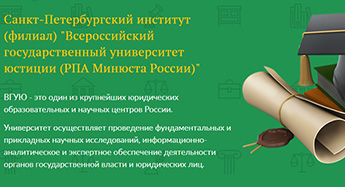Accession of Kyrgyzstan to Russia has caused a number of essential changes in all spheres of life and activity of Kyrgyz people. Law as regulator of public relations of Kyrgyz people had significant changes.
In the territory of Kyrgyzstan from 1917 to 1991 sources of law of Russia were applied: laws, government rules and regulations, legal customs, along with common law (adat) and shariat.
Some scientists attach to sources of law court practice and science on law fiqh (jurisprudence, in Islamic law - fiqh). The fiqh was source of law under shariat, and ereje - on adat. According to T. I. Ganiyeva, court practice is only a type of common law, and acquaintance with law through science and recognition of its conclusions does not correspond to sign of obligation.
Considering a question of correlation of shariat, adat and legislation, in our opinion, situation in Kyrgyzstan is characterized by similarity with legal development of majority of Islamic countries, where any component of noted triad resists to two others.
Therefore, adat tries to defend positions before shariat and law, which struggle with traditional norms for a long time. Shariat tries to confirm superiority over the law and adat, each of which in own way does not want to perceive Islamic rules of conduct. At last, law applies for a role of the only legitimate legal regulator in the face of adat and shariat, which - everyone from own positions - deny acts adopted by the state as not corresponding to local conditions.
In view of fact that laws acted as main source of family law, Russian legislation was reflected in Code of laws of the Russian Empire, where volume 10 has been devoted to family law.
After inclusion of Northern Kyrgyzstan to structure of Russia and accession of Southern Kyrgyzstan, adat as common law of Kyrgyz people, has been legalized by Russia and became a component of sources of law in Kyrgyzstan, in particular in "Provisional regulations on administration of Semirechensky and Syr-Daryinsky areas" of 1867 (§ 181), "Provision on administration of Turkestan region" of 1860 (Art. 208)[1]. It is noted in literature, that the Russian authority treated well-intentioned use of common law norms by the population.
As absolutely fairly noted by T. I. Ganiyeva, it was unprofitable for Russia to break radically adat and shariat, it should have become stronger in Central Asia, therefore the Government of the Russian Federation made efforts to adapt standards of common and Islamic law in the field of property relations, inheritance, family relations to implementation of policy, development of economy, satisfaction of interests of migrant population, treasury reimbursement.
The opinion of number of researchers concerning introduction of separate norms and institutes of Islamic law to imperial legislation that represented well-advised step of government promoting harmonization of relations in multiethnicsociety, is deemed to be fair in respect to our country.
In general, priority direction of Soviet legal policy were legal reforms along with gradual legal consciousness of Kyrgyz people.
After accession of Kyrgyzstan to Russia activity for promotion of Soviet law has begun, however, introduction and promoting of Soviet law were not easy, as Soviet lawyers who carried out this work hardly managed to draw attention of population to Soviet law.
In addition, matrimonial norms of Kyrgyz people have undergone strong influence in 20th years of 20th century: Soviet law has begun extensively protect rights of women. Soviet state paid much attention to law-making, which first stage was a formation of new concepts on offense, introduction of concept of "household crime" (patrimonial crime). Itwas meant as offenses - on adat and (partly shariat) matrimonial norms: polygamy, bridewealth, bridestealing.
As a result, chapter "On patrimonial crimes as remnant of patrimonial life" was published in 1926 in Criminal code of RSFSR, which belonged only to people who had similar remnants, including Kyrgyz people. In 1928 new legal document "On crimes as remnant of patrimonial life", which was completely included into new Criminal code of rSfSR of 1935. In all these legal documents, adat and shariat matrimonial norms were completely forbidden and punished by various terms of punishment. Bride wealth, commission of marriage by bride stealing, polygamy have been forbidden.
On the basis ofpolemic, developed on pages of legal magazines of 1920-1930th years, it is possible to make a conclusion, that many experts lawyers and officials tried to weaken legal impact on matrimonial sphere. Therefore, A. Petukhov suggested to commit to Soviet court only those men who have given a bridewealth against bride's will. If woman agreed to marry, then bridewealth should be permitted.
- Petukhov emphasized, that criterion of crime should not be who received property, but whether transfer of property by groom (all the same to whom and where) was the condition constraining sexual freedom of woman and interfering in those cases to marriage when, for example, if groomdidn't have enough property. He was supported also by I. Shigayev who wrote about 10 chapter: "Existence in the Criminal Code of article pursuing for a bridewealth gives a reason to apply it where it shouldn't be applied. In one case, bridewealth has character of payment for bride, ignoring of woman's will by parents, relatives where she is a source of unearned income forparents and relatives. There is no doubt, that article of Criminal Code pursuing payment and acceptance of bride wealth means this phenomenon. But another matter, when not bridewealth creates marriage, but, on the contrary, bridewealth arises from consent of bride to marry".
Temporary circular of National Commissariat of Justice has been published, where was set forth, that application of Art. 197 of Criminal code is possible only when property, or money transferred by groom, his parents, relatives or relatives-in-law remain in use of person from whomwoman's marriage depends. Only in these cases, there are signs of socially dangerous phenomenon provided by Art. 197: person, from whom woman depends, uses dependence of woman for property benefits. Afterwards, this circular has lost the validity.
Soviet lawwas against the marriage by bride stealing. Soviet law has formally protected Kyrgyz women from stealing: nevertheless, as shown by archival materials of the 1920-1940th years, in real life custom of bride stealing as form of marriage continued to exist in Kyrgyzstan.
In Criminal code of RSFSR of 1960 category of crimes as remnant of local customs has remained (chapter XI), three groups of customs have been included:
- crimes encroaching on equality of women and men - payment and acceptance of repayment for bride (bride wealth), compulsion of woman to marry, compulsion of woman to continuation of marriage cohabitation, preventing woman's marriage, bride stealing for marriage, bigamy and polygamy;
- crime, which object is physical and moral development of minors (men and women) - marriage with person who hasn't reached a marriage age, actual marriage cohabitation with person who hasn't reached a marriage age;
- evasion from reconciliation, murder as blood feud, murder of woman "because of remnants of last attitude towards woman".
In reality, bride stealing as marriage form in Kyrgyzstan remained also in post-war time, and remains today. As a rule, it occurs by mutual consent. Sometimes, bride stealing occurs also without women's consent. In these cases, traditional adat reconciliation is applied. Intermediaries are authoritative relatives and persons of senior generation, who begin negotiations with bride's relatives, until they don't receive consent to marriage. At the same time, during negotiations also bridewealth size is considered. Now informally bridewealth also remains.
In modern scientific-journalistic articles problem of coexistence of triad often rises: secular law, shariat and adat. With positions of some authors we agree, for example, with M. Iordanov, L. Syukiyaynen. In particular, as for Islamic law, Russian State isn't Islamic and therefore for its legislation shariatdoesn't have a legal value.
However, secular nature of this state doesn't exclude spiritual and pragmatic importance of shariat as an integral component of Muslim citizens' belief at all. For Muslims it is extremely important to realize, that current legislation, at least, doesn't contradict values of shariat and legal customs on content.
At the same time, adat, which exists in our society todayat civil, spiritual and moral relationship between citizens of the Kyrgyz Republic, having mixed up with shariat and state laws.
Despite authorization of common law by Russia, edition and distribution in the territory of Kyrgyzstan of imperial laws, which limited or cancelled action of common law in certain cases took place.
Constitution of Kyrgyz SSR has proclaimed full equality of woman and man in all areas of economic, state, socio-political life and established its guarantees (Art. 93). Special meaning for civil legal capacity of women was declaration of principle of state protection of mother and childinterests, help to mothers with many children, granting of holidays with allowance to woman at pregnancy and childbirth.
Soviet law in Kyrgyzstan developed on the basis of Constitution of USSR of 1936 and Constitution of Kyrgyz SSR of 1937. The victory of socialism in field of economic and socially - political life has found reflection in law.
During the period of Patriotic war and during post-war period, state took big care of strengthening of motherhood and childhood protection, further strengthening of family. A number of major laws and other regulations in field of family relations has been issued.
Thus, development of shariat as standard and valuable, regulatory system during the Soviet period has come down to two tendencies. Soviet political, state authority at the first stage of existence considered it as suitable for implementation of purposes in organization of public relations and management, and provided realization of its norms and principles. Soviet state laid to Islamic law significance of very important factor in life of people of Kyrgyzstan.
НАСБЕКОВА Саткынай Калыбековна
кандидат юридических наук, доцент кафедры предпринимательского и процессуального права Юридического факультета Кыргызского Национального университета имени Ж. Баласагына, заместитель главного редактора международного научно-практического журнала «Право и закон»




































